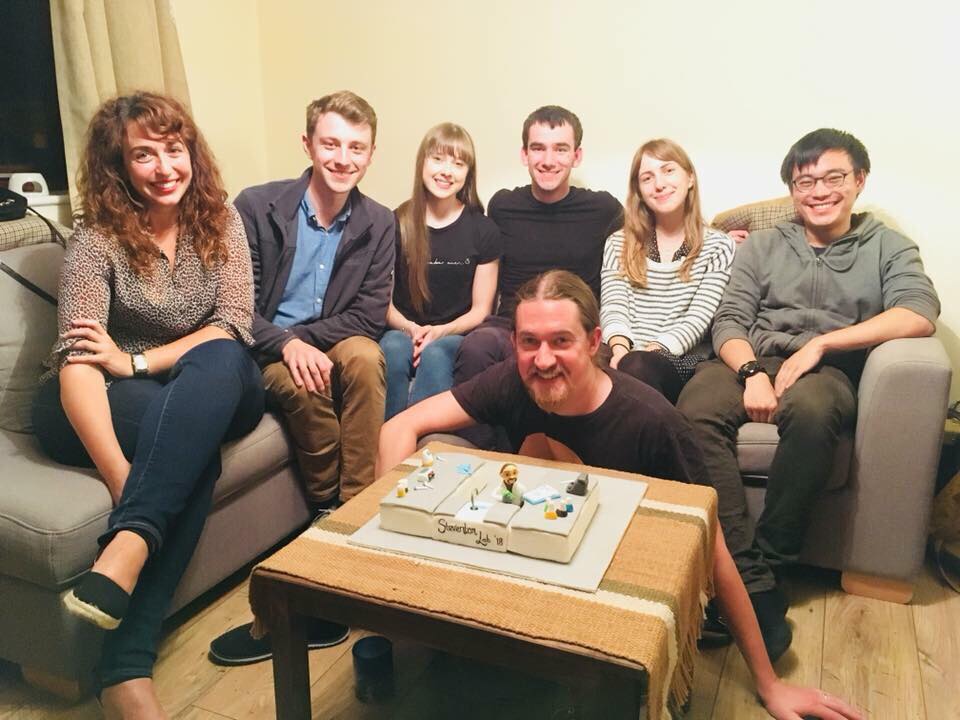I am a third year biologist, inspired by how complex tissues can emerge from a single cell – a discipline known as developmental biology. When I was introduced to the field in the second year of my degree, it immediately sparked my interest. I had so many questions, a plethora of which are still unanswered in the field. Given my fascination, I set out to find a lab to launch myself into the real world of science. I didn’t merely want to learn the answers to these questions. I wanted to know how we get to those answers, to solve problems, and to understand how organisms develop. I hope to share with you how small changes in our mindset can lead to bigger horizons and a leap into the unknown.
At school we are molded into stiff beings. We are forced to learn facts and regurgitate them in exams. We ask questions and are often just given the answer and being wrong is seen as failure and embarrassment. All in all, the point I am trying to get across is that we are not encouraged to think for ourselves. A knock on effect of this, is that we become scared to express our own ideas and our uniqueness and creativity is not valued.
My summer placement gave me the chance to delve into biology from a different perspective, which undoubtedly required a step out of my comfort zone. It required change, which people are too often apprehensive about. Furthermore, this summer gave me the chance to think for myself and that is when I realised that small changes in the way we think and perceive have huge consequences on our capabilities.
Being introduced to a new field can be overwhelming and content-heavy degrees can often discourage students from following an academic career path (I must stress that an academic career path is not for everyone, but I hope that the ideas in this article will be transferable). Many people give up too easily and I too sometimes have doubts about if I will be good enough to succeed in a research career.
A common theme I want to highlight is the brain and, importantly, how we perceive different situations. For example, our eyes are not cameras which simply take a perfect image of the surroundings. Our eyes are an apparatus which relays information to the brain, allowing us to perceive our environment. This perception is unique and partly based on our life experiences. With this in mind, our approach to problems is therefore unique and making small changes in the way that we think can ultimately change the ‘I cannot’ into ‘I can’.
There are many ways to perceive a situation. Problems can be perceived as barriers and shadowed by negative thoughts. These thoughts can lock us into a mindset, leading us to the belief that we cannot achieve something. Or alternatively, problems can be perceived as challenges and opportunities to thrive and achieve. I think that we (me included) can perceive problems or a challenging career path as impossible because we see the ambitious end point with no appreciation of how long it takes to get there and no appreciation of the gradual journey towards the goal.
So remember that progress takes time and occasionally take a moment to remind yourself that you can do it! I think that this mindset turns a lonely, overwhelming mountain into an exciting journey, which EVERYONE must take to develop as a person.
Furthermore, this stresses the need for the academic community to nurture the next generation of scientists. Having an encouraging and motivating environment goes a long way in allowing people to reach their full potential, something I thank my summer lab group for!
One large aspect of science is stepping into the unknown and for an early-career scientist, the unknown can be scary. We are faced with a new field of science and it may be hard to comprehend the information to ask novel questions. However, I have an approach to overcome this: I tell myself that science is simple and logical. Of course science can become very complex, but this is when we consider all aspects of the problem at once. Instead, I break a large problem into small manageable parts and, essentially, this is what science is about: being able to study specific questions with an open mind, and then putting it into a wider context to appreciate the complexity. But remember, this complexity is a network of simpler steps.
Unfortunately, we spend too much time comparing ourselves to others and, being an identical twin, I am all too aware that this leads to devaluing ourselves. We often compare grades, our job status, or how happy we are on the outside. But we tend to compare our worst with another person’s best, which makes the comparison unfair. We are all unique, and our strengths lie in different places. Therefore, do not compare yourself to others and stop competing against your peers. Set your own personal goals and thrive for the greater things in life… which often cannot be measured.
Don’t be scared to step out of your comfort zone, and embrace change as a way to grow as a person. Ask questions, but importantly don’t be afraid to ask questions to which the answers are unknown. Think for yourself a little more and occasionally, whatever it may be, remind yourself and your peers that you CAN do it.

